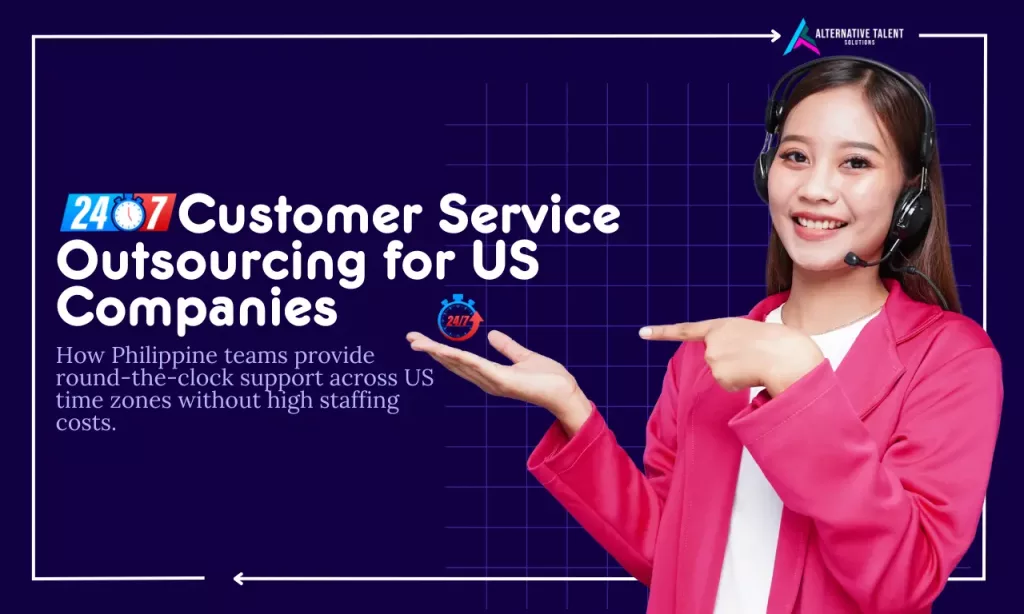Healthcare providers face rising admin pressure—from scheduling and billing backlogs to chart updates and compliance work. These tasks keep your practice running, but they also drain time away from patient care. That’s where healthcare process outsourcing helps.
This guide walks you through what outsourcing means, why healthcare teams use it, and how clinics, hospitals, and telehealth providers build stable workflows with trained external support.
Table of Contents
- What Is Healthcare Process Outsourcing?
- Why Healthcare Organizations Outsource
- Tasks and Roles You Can Outsource
- How Outsourcing Helps Clinics
- How Outsourcing Helps Hospitals
- How Outsourcing Helps Telehealth Providers
- Workflow Examples
- Compliance and PHI Protection
- Why Philippine Teams Are a Strong Fit
- How to Choose the Right Partner
What Is Healthcare Process Outsourcing?
Healthcare process outsourcing means assigning administrative and billing-related work to trained external teams. These tasks don’t involve clinical decisions but they support core operations.
Common examples include:
- Scheduling
- Patient intake
- Chart updates
- Medical billing
- Claims processing
- Payment posting
- Medical coding support
- Document indexing
Healthcare outsourcing is safe and effective when the partner follows HIPAA safeguards, signs a Business Associate Agreement (BAA), and uses secure workflows.
Why Healthcare Organizations Outsource
Healthcare workloads grow every year. Outsourcing helps teams handle high-volume tasks without overwhelming staff.
Key benefits
- Faster billing cycles
- Fewer denied claims
- Reduced admin backlogs
- Better accuracy in documentation
- Lower cost compared to hiring in-house
- 24/7 patient support
- Less burnout for staff
- Improved cash flow
For many providers, outsourcing helps stabilize daily operations and improve patient experience.

Tasks and Roles You Can Outsource
Healthcare outsourcing covers both administrative and revenue cycle operations.
Administrative Support
- Appointment scheduling
- Patient intake
- Prior authorization support
- Document indexing
- Medical transcription
Billing and Revenue Cycle
- Medical billing
- Payment posting
- Denials management
- Eligibility verification
- Charge entry
Coding Support
- Coding assistance
- QA review
- Documentation prep
Back-Office Support
- Data entry
- Records scanning
- Updating EMR details
These tasks are process-driven, repeatable, and ideal for trained specialists.
How Outsourcing Helps Clinics

Clinics often operate with very small teams. Front desk staff handle calls, intake forms, billing questions, chart requests, and scheduling at the same time.
Outsourcing helps clinics reduce delays and stay organized.
Examples for Clinics
- If phone calls overwhelm the front desk → outsourced schedulers
- If claims pile up → outsourced billing team
- If charts aren’t updated on time → outsourced documentation support
- If follow-ups are slow → outsourced patient coordination
Clinic Workflow Example
- Patient calls
- Outsourced scheduler books appointment in EMR
- Insurance verification team confirms benefits
- Provider sees updated chart
- Billing team submits a clean claim
- Payment poster applies payment quickly
Clinics gain more time for clinical tasks and patient care.
How Outsourcing Helps Hospitals
Hospitals have high patient volume, complex billing structures, and large documentation requirements. Outsourcing helps support these demands without large hiring cycles.
Examples for Hospitals
- Large volumes of claims → outsourced RCM teams
- Documentation bottlenecks → transcription support
- High denied claims → dedicated denial specialists
- 24/7 patient communication → round-the-clock support
Hospital Workflow Example
- Patient admitted
- Intake updated by outsourced admin team
- Clinical notes transcribed
- Coding support assigns correct CPT/ICD-10
- Billing team prepares and submits claims
- Denials team follows up until reimbursement arrives
Hospitals benefit from scale, accuracy, and improved cash flow.
How Outsourcing Helps Telehealth Providers

Telehealth operations rely heavily on digital communication and documentation. Outsourcing provides online-ready teams who support virtual workflows.
Examples for Telehealth
- Chat or call triage
- Patient onboarding
- Appointment scheduling
- Insurance checks
- EMR updates
- Billing support
Telehealth Scenario
A telehealth provider receives a surge of messages. Outsourced support staff handle patient questions, book appointments, update demographics, and escalate clinical issues only when needed.
This improves patient satisfaction and reduces wait times.
Workflow Examples
A. Appointment Scheduling Workflow
- Patient calls or messages
- Scheduler confirms identity
- Checks provider availability
- Books appointment
- Sends reminder
B. Billing and Claims Workflow
- Provider submits superbill
- Coding support assigns correct codes
- Claims created and scrubbed
- Submitted to payer
- Payments posted
- Denials handled and resubmitted
C. Medical Coding Workflow
- Receive documentation
- Code review and assignment
- Compliance check
- Hand-off to billing team
These workflows help create stable, repeatable processes for healthcare organizations.
Compliance and PHI Protection
Healthcare compliance is essential. A strong outsourcing partner follows the rules set by the U.S. Department of Health and Human Services (HHS).
HIPAA Safeguards
- Administrative: staff training, clear procedures
- Physical: secure work areas, no personal devices
- Technical: encryption, access controls, audit logs
Business Associate Agreement (BAA)
A BAA outlines responsibilities for protecting PHI and is required for every healthcare engagement.
How Outsourcing Supports Compliance
- Standardized workflows
- Less room for manual error
- Logged and monitored system activity
- Controlled access to PHI
For more detailed safeguards by ATS, see our full HIPAA guide.
Why Philippine Teams Are a Strong Fit
Many healthcare organizations choose Philippine outsourcing because of:
Time-Zone Advantage
- PH night shift matches U.S. daytime
- PH daytime supports U.S. night shift
- Easy to build 24/7 coverage
Skill and Communication
- Strong medical education background
- High English proficiency
- Familiarity with U.S. healthcare terms
- Patient-friendly communication style
Cost and Scalability
- Faster onboarding
- Lower operational costs
- Ability to scale teams quickly
These strengths make the Philippines a top option for healthcare support.
How to Choose the Right Partner
Before outsourcing, check if your partner:
- Follows HIPAA safeguards
- Signs a BAA
- Has healthcare-trained staff
- Offers secure delivery centers
- Provides sample workflows
- Can scale based on volume
- Has strong QA processes
For healthcare tasks, experience and compliance matter more than general BPO skills.
What is healthcare process outsourcing?
It is assigning healthcare administrative and billing tasks to trained external teams.
What tasks can be outsourced?
Scheduling, billing, claims, intake, transcription, and documentation.
Is outsourcing allowed under HIPAA?
Yes, with a signed BAA and required safeguards.
Why do clinics outsource?
To reduce admin overload and speed up billing.
Why is the Philippines a strong outsourcing destination?
It offers skilled staff, strong English proficiency, time-zone coverage, and cost efficiency.














